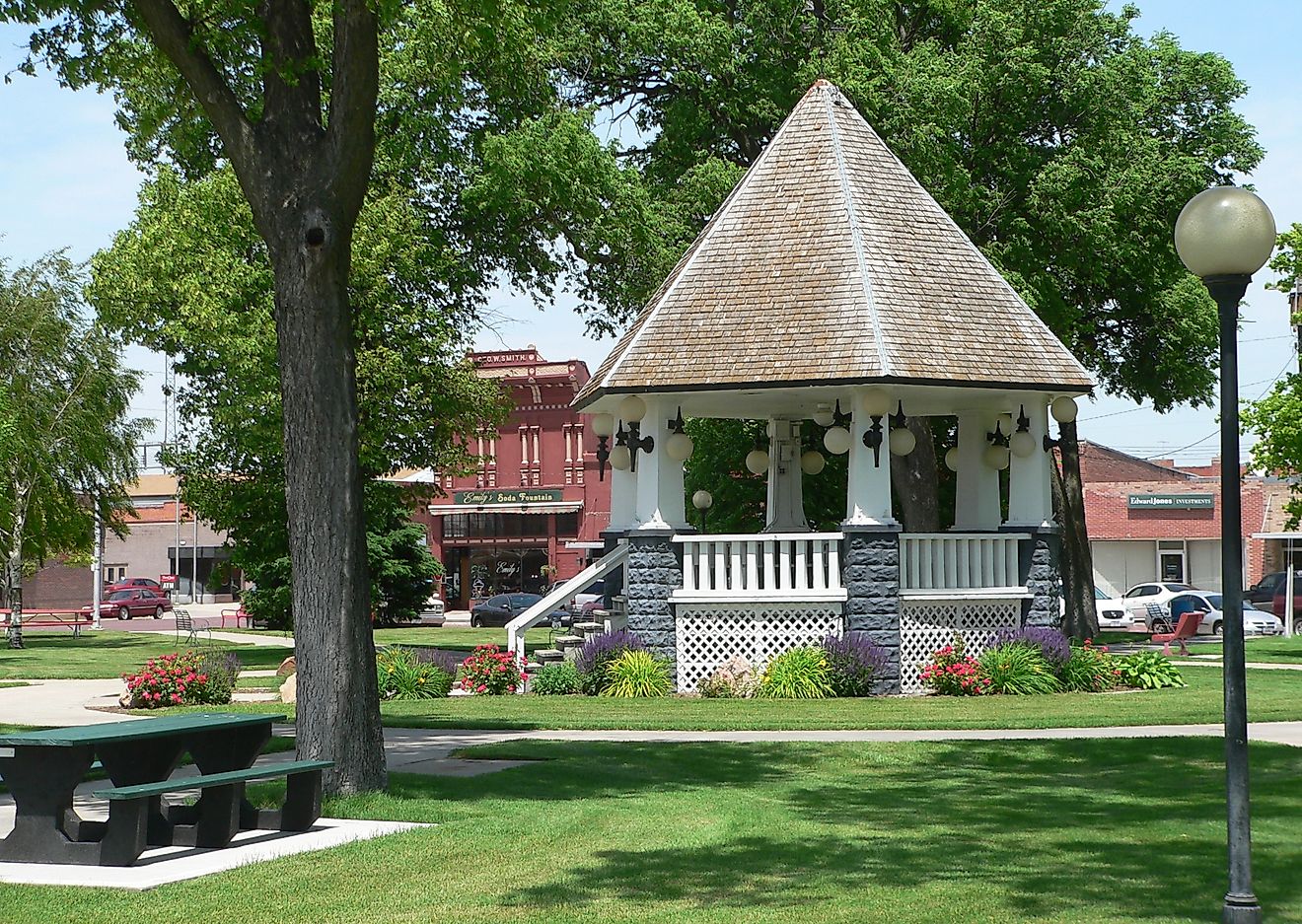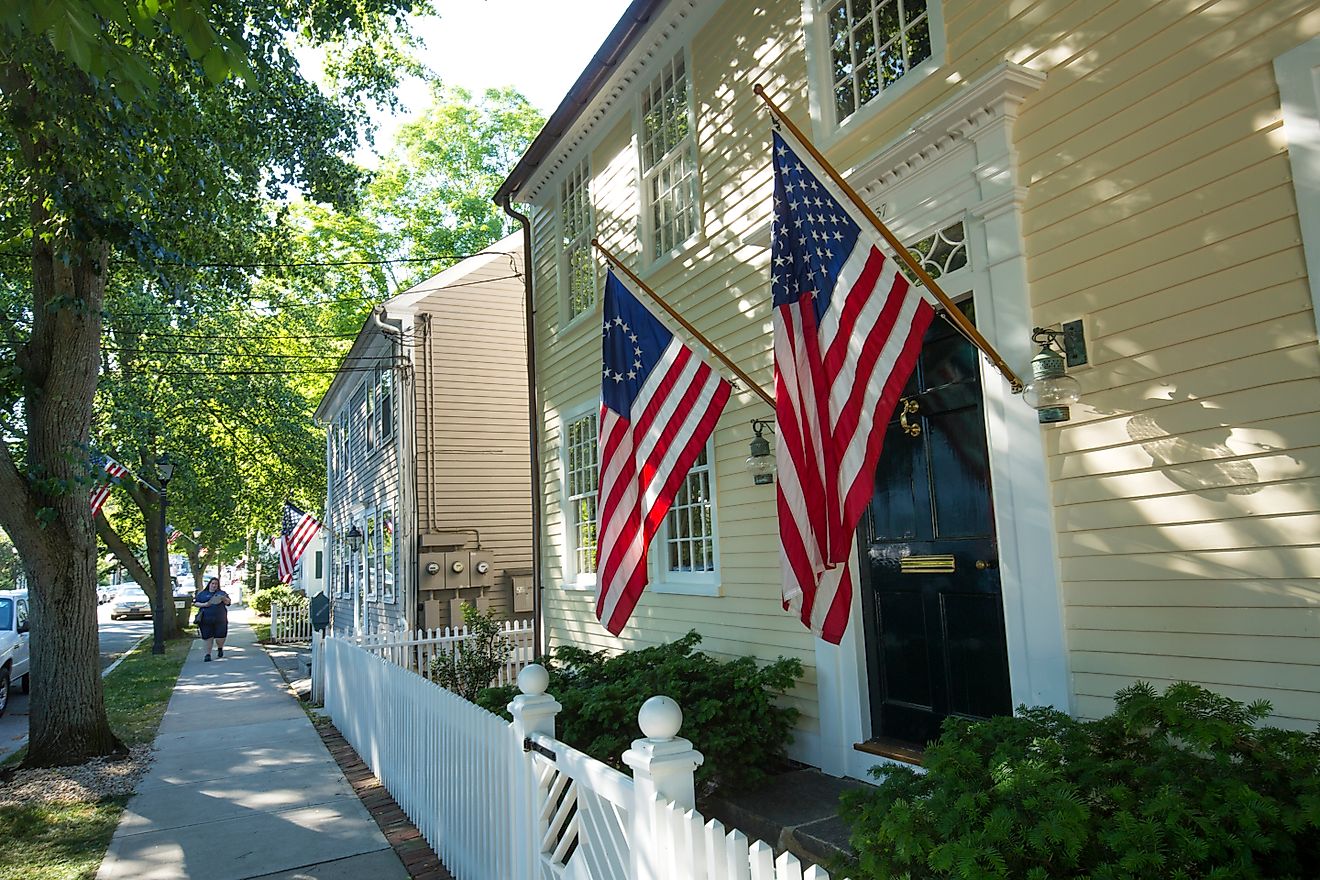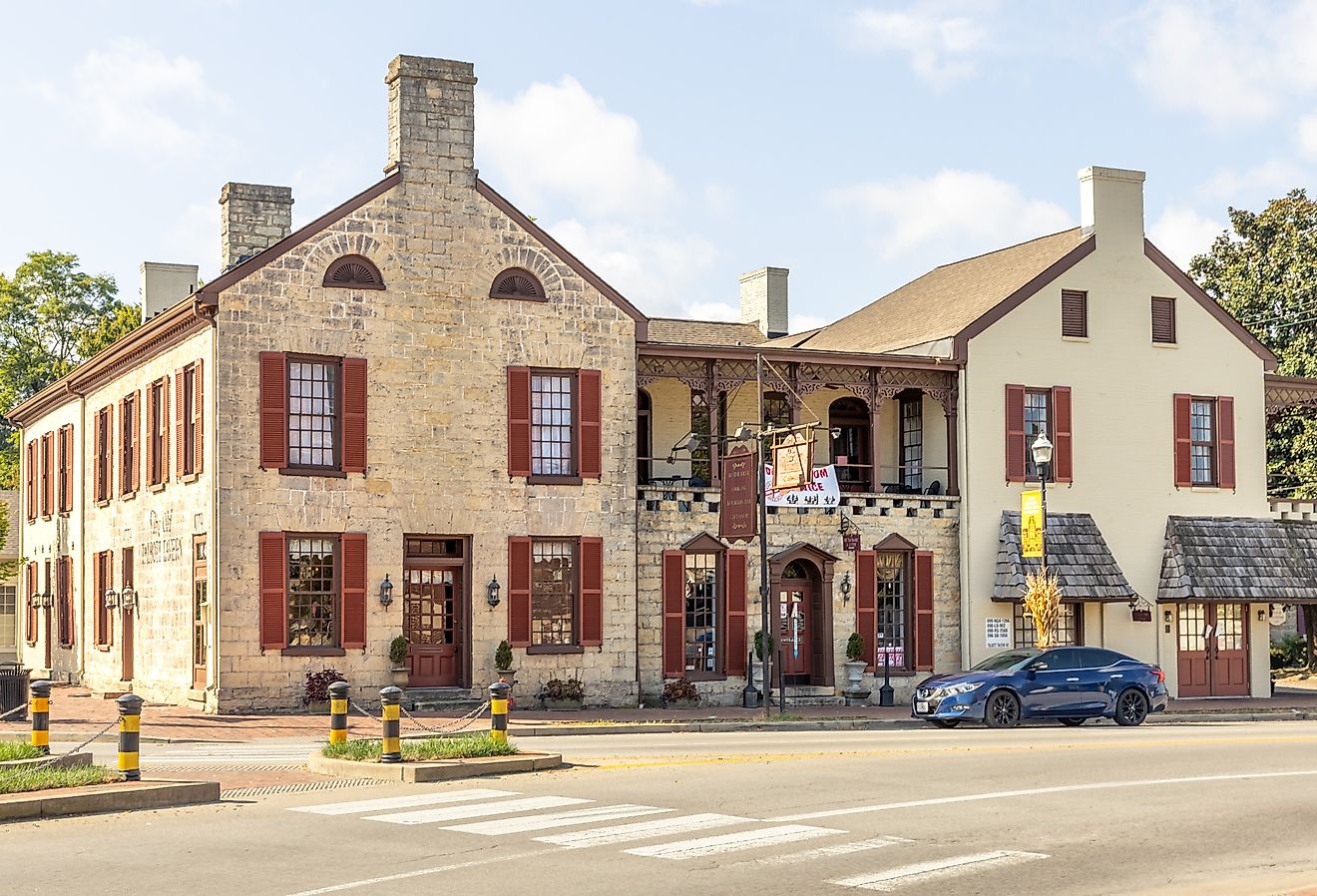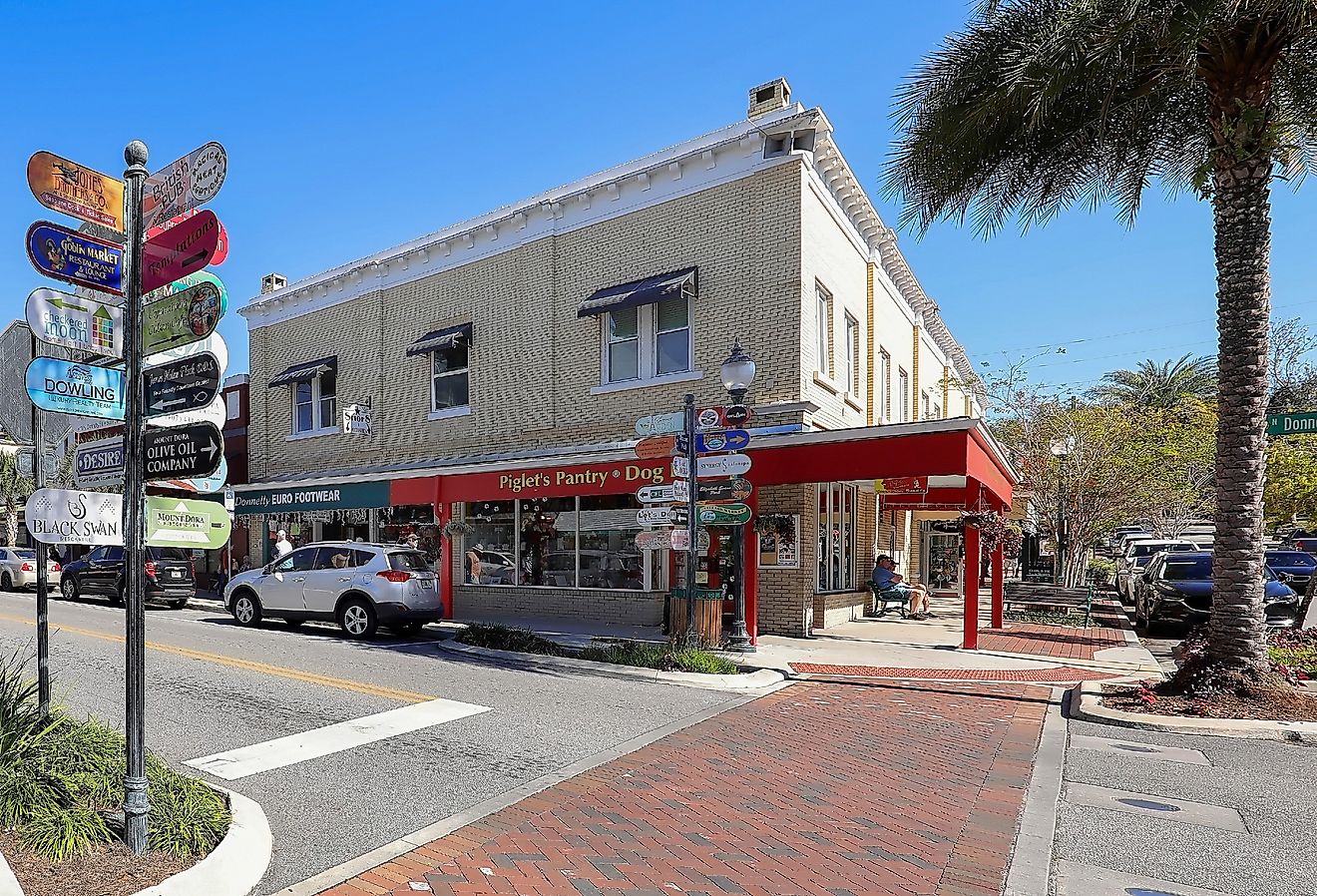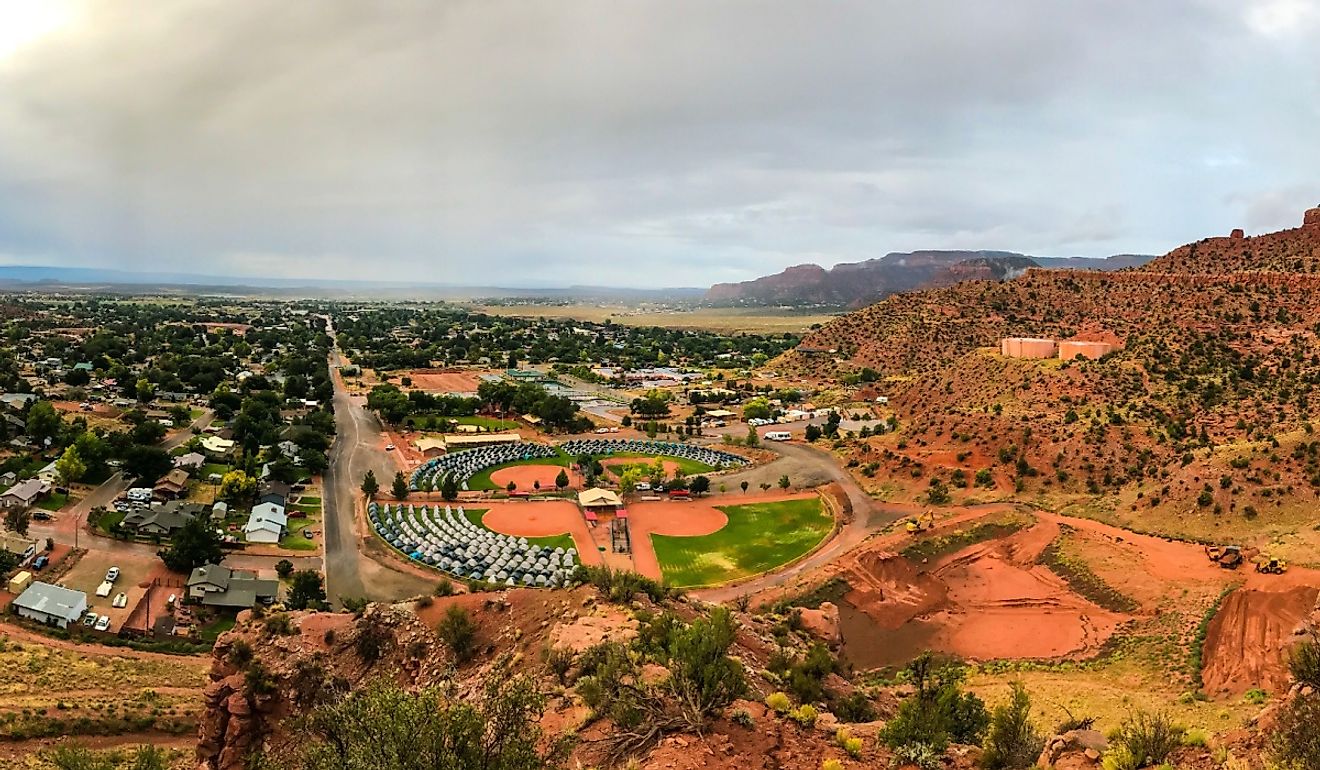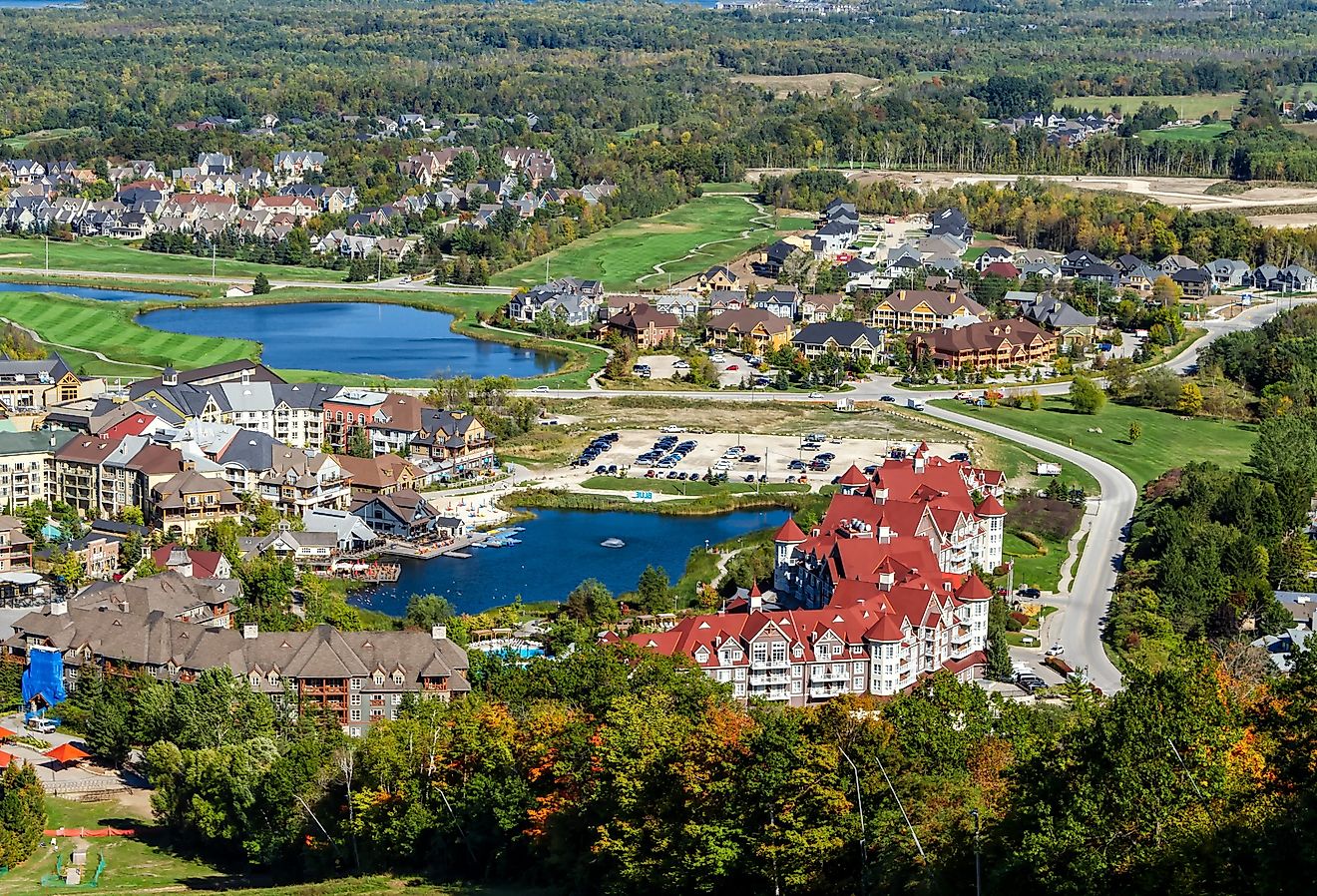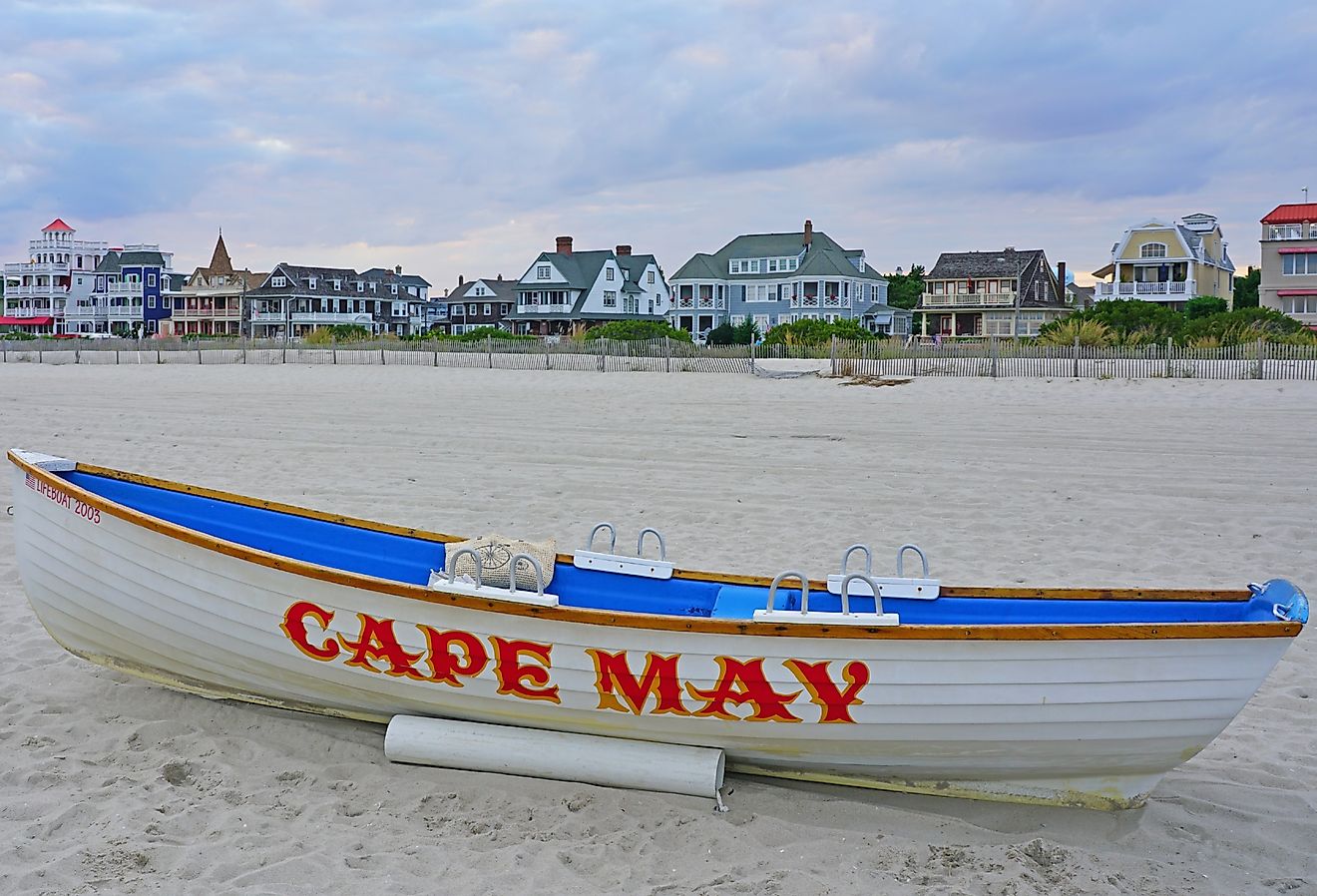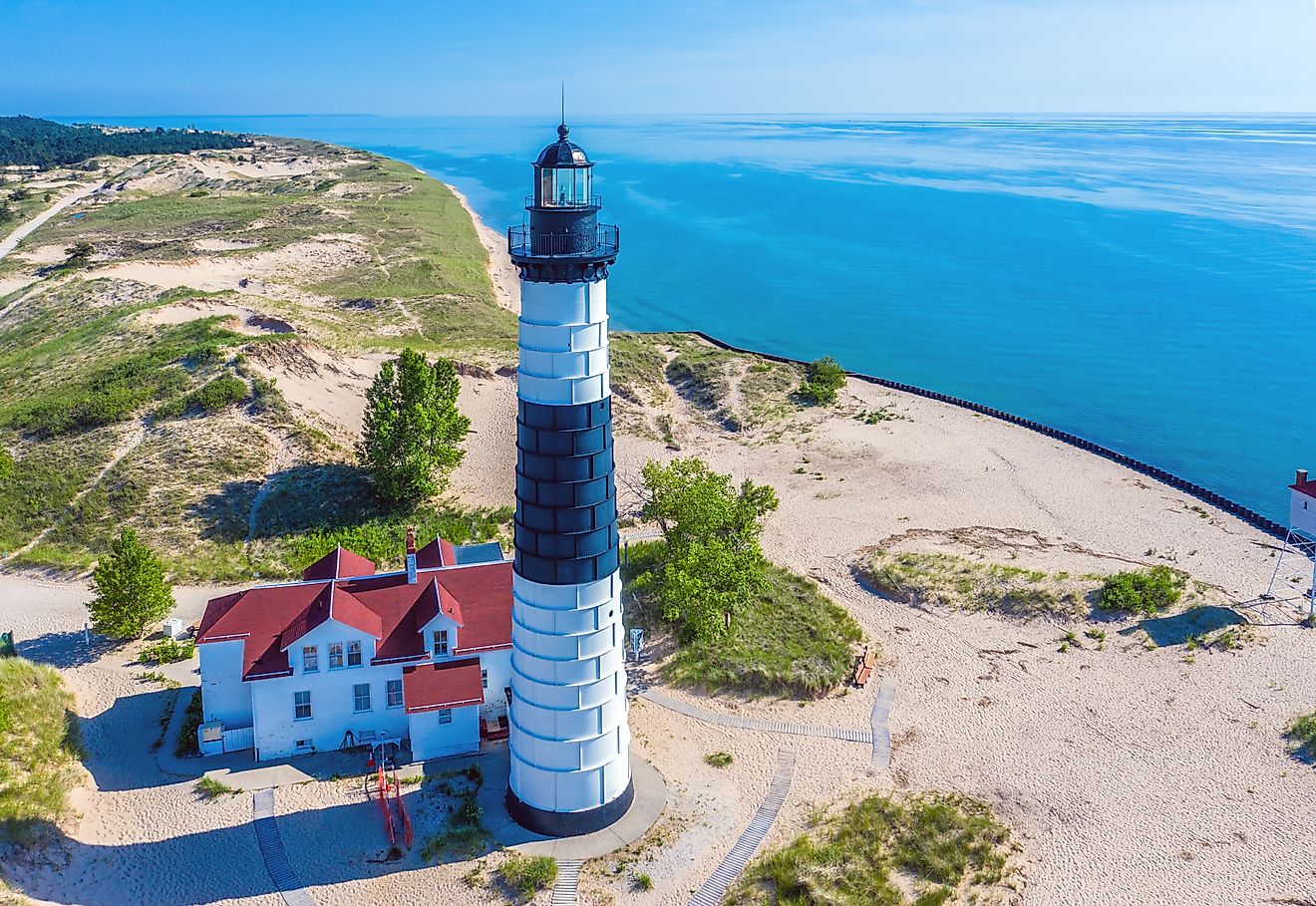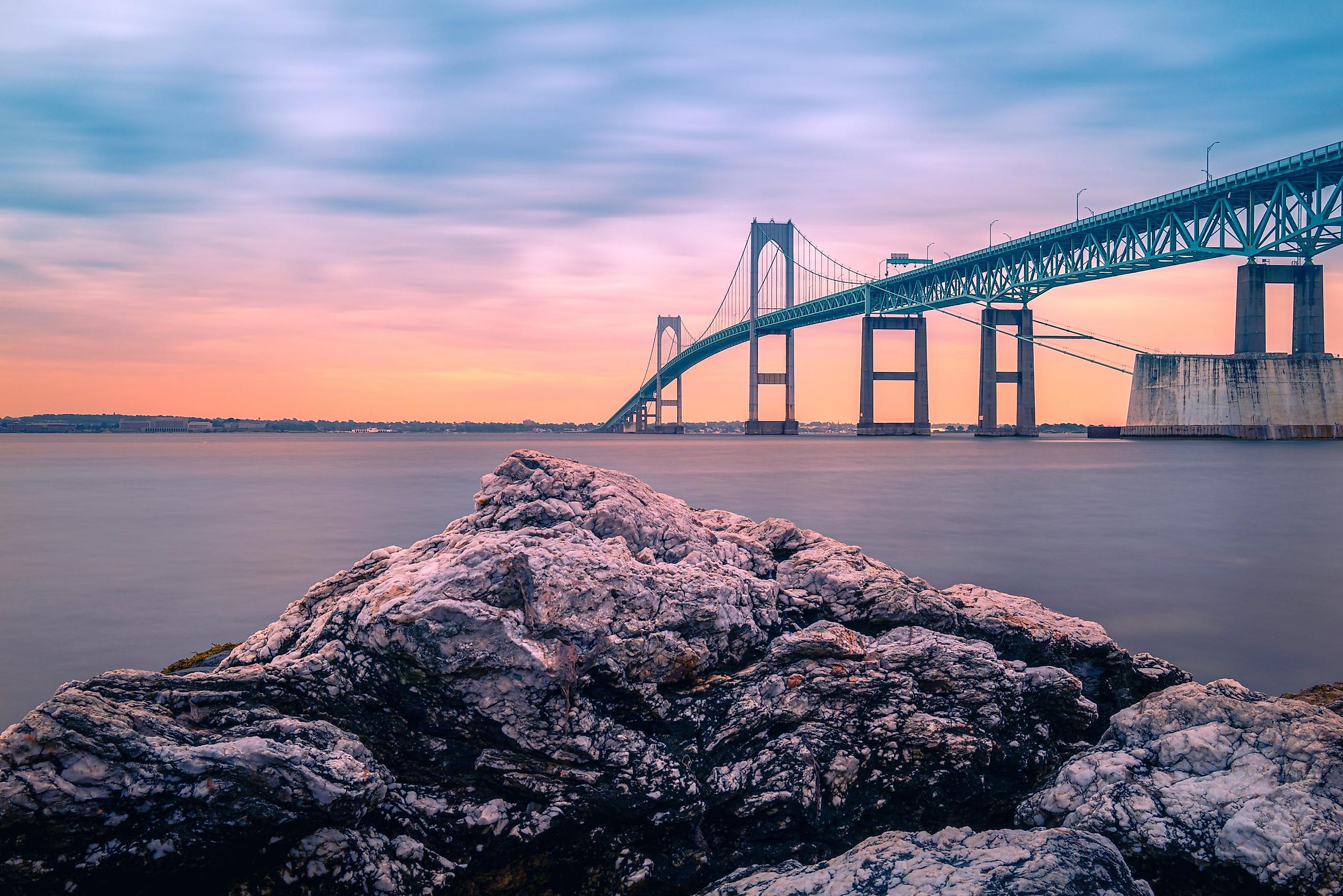
These Towns in Rhode Island Have Rich Cultural Heritage
Within the cozy embrace of the smallest state in the country lies a hidden tapestry of historical wonders and rich culture waiting to captivate the curious traveler. Rhode Island, often underestimated in size, unfolds like a treasure map, with its quaint towns offering more than meets the eye. Stepping off the beaten path, you will find charming locales standing as living monuments to the rich tapestry of America's cultural heritage. Journey from Bristol, where the echoes of a Fourth of July celebration from 1785 still resonate, to the historic Smith's Castle in North Kingstown. Each town unfolds as a thrilling chapter in Rhode Island's vibrant and often surprising history.
Bristol

Bristol is nestled along Narragansett Bay and proudly claims the title of hosting America's oldest Fourth of July celebration, a tradition dating back to 1785. Beyond its festivities, Colt State Park sprawls over 464 acres, offering lawns, stone walls, and curving drives for leisurely strolls. Bristol was not only the birthplace of poet Sarah Helen Whitman, a romantic interest of Edgar Allan Poe, but also houses the Herreshoff Marine Museum, showcasing America's Cup yachts. The town's downtown area is adorned with beautiful architecture like Linden Place, an 1810 Federal-style mansion, while the Bristol Art Museum finds its home in a former carriage house. Bristol is an icon of American culture.
Warren

With its historic architecture epitomized by the 2nd Story Theatre, Warren is a haven for those seeking the charm of yesteryears. The town annually hosts the quirky Warren Walkabout, an event that seamlessly blends local art and business in a celebration of community. The historical Warren Armory, built in 1842, stands as a testament to the town's enduring legacy. The Massasoit Spring, where Native American leader Massasoit once drank, adds a touch of natural history. Samuel Slater, known as the father of the American Industrial Revolution, was hailed from Warren, leaving an indelible mark on the town. For those seeking outdoor activities, Warren's East Bay Bike Path offers picturesque views of the Barrington and Palmer Rivers.
Tiverton

Tiverton unfolds its historical and cultural tapestry through sites like Fort Barton, a Revolutionary War site with an observation tower providing panoramic views of the surrounding area. Tiverton Four Corners emerges as a center for arts, antiques, and artisan crafts, a testament to the town's commitment to preserving its cultural heritage. Fogland Beach beckons water sports enthusiasts, with windsurfing and kitesurfing being as popular pastimes. The annual Tiverton Days festival becomes a vibrant celebration of local history and community, demonstrating everything that makes the town great. The Chace-Cory House, dating back to 1730, offers a glimpse into Tiverton's colonial past, and the Tiverton Library stands as a repository of significant local history resources, fostering a connection to the town's roots.
Westerly

Westerly, a town with a unique blend of entertainment and industry is home to the oldest amusement park in Rhode Island, Atlantic Beach Park. The historical Wilcox Park is known for its botanical garden and library steeped in history. The Westerly Pops, an annual concert event at the park, resonates with the town's musical traditions. The Flying Horse Carousel, one of the oldest carousels in the United States, spins tales of a bygone era. Westerly's granite industry history, highlighted by structures like the Westerly Library, adds an industrial touch to the town. The Misquamicut State Beach, with its sandy shores and annual festivals, becomes a haven for those seeking both relaxation and excitement.
Exeter

Exeter is full of history. It boasts the historic Clement Weaver-Daniel Howland House, built in 1679. For those seeking both winter sports and summer water park adventures, Exeter's Yawgoo Valley Ski Area provides a year-round playground. The town proudly honors Gilbert Stuart, a famed portraitist, through the Gilbert Stuart Birthplace and Museum. The annual Exeter Fall Festival features local crafts and produce and becomes a gathering point for the community. The Fisherville Brook Wildlife Refuge, a habitat for diverse bird species, adds a touch of nature to Exeter's historical charm that is perfect for bird enthusiasts. The town's public library, built in 1896, stands as a repository of local genealogical records, inviting residents to connect with their roots.
Little Compton

Little Compton is known for being the home of the 17th-century Wilbor House, which has been transformed into a historic living museum. The town annually hosts the Little Compton Antiques Festival and Classic Auto Show, celebrating its rich cultural heritage. You can visit the Sakonnet Vineyards, which produces locally renowned wines and offers a taste of the region's agricultural legacy. The South Shore Beach, with its quiet environment, provides a serene retreat perfect for couples. The Little Compton Common Burial Ground, with graves dating back to the 17th century, becomes a poignant reminder of the town's enduring legacy. Little Compton's annual summer fair showcases local art, music, and food, creating a vibrant tapestry of community life.
Jamestown

Jamestown is surrounded by maritime history and houses the Beavertail Lighthouse Museum, documenting over 300 years of nautical heritage. For thrill-seekers, there is Conanicut Island, a popular spot for sailing and kayaking, adding a touch of adventure to the town's historical charm. The annual Jamestown Windmill, built in 1787, stands as a historical landmark, weaving a connection to the town's storied past. Fort Wetherill State Park, a former military fort, offers cliff-top views, a testament to Jamestown's strategic wartime significance. The Jamestown Arts Center has contemporary art exhibitions and adds a modern touch to the town's cultural landscape. The town's annual Fools' Rules Regatta, featuring homemade boats in a unique race, exemplifies Jamestown's playful spirit and leaves a memorable impression on all its visitors.
Narragansett

Narragansett, home to the iconic Point Judith Lighthouse, has served as a navigational aid since the early 19th century. The town annually celebrates its maritime heritage through the Narragansett Seafood Festival, which is also a testament to the local fishing industry. The historic Narragansett Towers are remnants of the Victorian era and add an elegant touch to the town's coastal landscape. Visitors love Narragansett Town Beach, renowned for its surfing conditions, becoming a magnet for families and beach enthusiasts. The Narragansett Indian Monument pays homage to the area's original inhabitants, fostering a connection to the region's indigenous roots, which pairs perfectly with the Narragansett Historic District Walking Tour, showcasing Victorian architecture, inviting residents and visitors alike to step back in time.
North Kingstown

North Kingstown, steeped in history, is home to Smith's Castle, a 17th-century plantation and historical site. The Quonset Air Museum, displaying vintage aircraft and memorabilia, becomes a living testament to the town's aviation legacy. There is Wickford Village, with its art galleries and colonial architecture, which offers a charming glimpse into North Kingstown's cultural scene. The annual Wickford Art Festival, one of the oldest in the country, transforms the town into an art lover's haven. The historic Casey Farm, dating back to the 18th century, not only provides tours but also hosts a farmers' market, connecting residents to their agricultural heritage and fresh farm-to-table produce. The Biomes Marine Biology Center, the only private marine education facility in Rhode Island, enriches North Kingstown's educational landscape.
A Tapestry of History and Culture in Rhode Island's Towns
Rhode Island's towns each have their own unique historical and cultural heritage. They form a mosaic that weaves together the diverse threads of America's past. From celebrations dating back to the 18th century to quirky annual events, these towns offer more than just historical sites; they present a living connection to the roots and traditions that have shaped Rhode Island into the vibrant state it is today.
